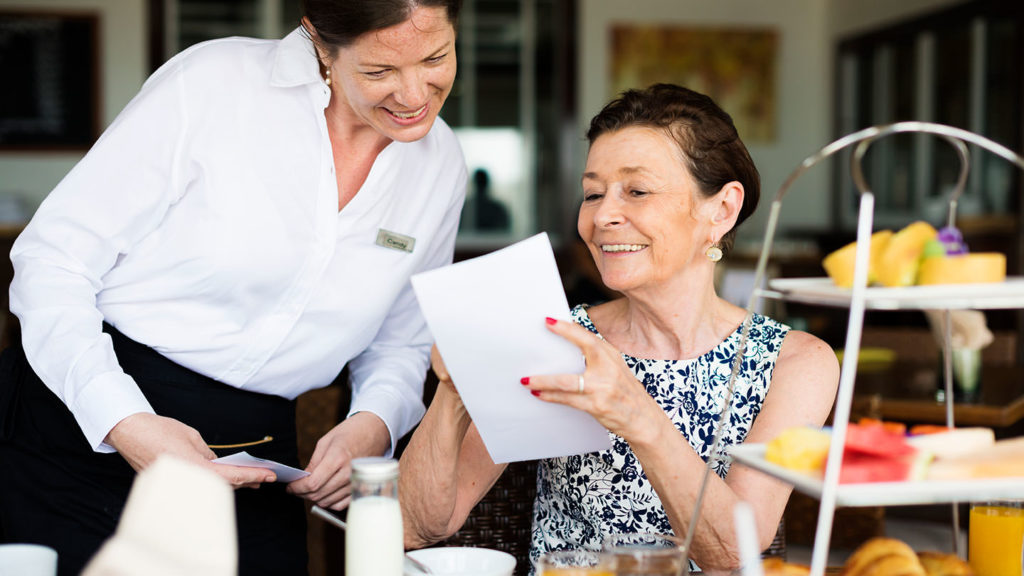Recently updated on February 27th, 2025 at 01:38 pm
“One does not inhabit a country; one inhabits a language” – enlightened words by Romanian philosopher, Emil Cioran, who could not have known at the time how pertinent this would be to the Balkan state of Montenegro, and indeed the Montenegro language.


The recognition of Montenegrin as a national language was a political hot potato for years following the country’s split from Serbia. But in 2017, the Montenegrins scored linguistic gold with the International Organization of Standardization’s identification of Montenegrin, as a separate language from Serbian.
A ‘new’ Montenegro language
Despite this, more Montenegrins admit to speaking Serbian than the newly recognised language. What’s more, there is still some debate as to whether the Montenegro language is, in fact, a different language at all.
In response, the Montenegrins have tried to distance themselves linguistically from Serbian by adding two letters to their alphabet and making more use of the Latin alphabet in text, than of Cyrillic.
However, linguists insist that the two languages are mutually intelligible. And in fact, that Montenegrin, Serbian, Bosnian and Croatian are basically the same Balkan beat. Handy for travellers. Not nearly as pleasing to the Montenegrin nationalists who are insistent on asserting the Montenegro language as its own idiom.
There’s no confusion that Montenegrin is the Balkan state’s official language. However, Bosnian, Croatian, Serbian and Albanian all remain languages in official use in Montenegro.
RELATED CONTENT: A Montenegro vacation is the new (and more affordable) French Riviera
Popular Montenegrin phrases for your next visit


Ready to channel your inner Montenegrin? We’ve done the homework for you and selected our choice Montenegrin phrases to make your Baltic break extra special.
1. Hello, goodbye and good morning in Montenegrin
Say ‘hello’ to Montenegro with a rousing zdravo, pronounced ‘zdrah-voh’ – the emphasis is on the first part of the word. Feeling more formal? Greet your counterpart with dobro jutro (‘dob-ro yoo-tro’), ‘good morning’ in Montenegrin. Use dobar dan (‘dob-ar-dun’) in the afternoon and dobro veče (‘dob-ro ve-che’) in the evening. To say goodbye, say doviđenja (‘doh-vee-dje-nyah’). True to their Mediterranean roots, a friendly Ćao! (pronounced the same as in the Italian ciao) will do just as well for both ‘hi’ and ‘bye’.
2. Please and thank you
You’ll go far in life with a little ‘please’ and ‘thank you’. So, brush up on the Montenegrin equivalents of both before your trip. Say molim (‘mo-leem’) for ‘please’ and hvala (‘hvah-lah’) for thank you – the emphasis on the first syllable in hvala which rhymes with koala.
3. Yes or no
These two Montenegrin words are going to be a doddle to remember. For ‘yes’, say da, for ‘no’, say ne. We’re so confident you’re going to master these swiftly, we’ll throw in a third word for good measure – dobro (pronounced ‘doh-broh’) means good, for when you really want to emphasise your approval.
4. Do you speak English?
English is not a widely spoken Montenegro language. They probably have their hands full juggling all those Balkan languages of which we spoke earlier. That said, however, you will find locals who do speak English in tourist centres. Always ask da li pričate Engleski? (‘dah-lee pree-cha-the lee En-gles-kee?’) to find out.
5. Where is…?


Insert Gdje je (‘gd-yeh yeh’) in front of what you seek and you’ll likely get the directions you’re after. Examples could be:
- Gdje je toalet (‘gd-yeh yeh twa-let’): Where is the washroom?
- Gdje je bankomat (‘gd-yeh yeh ban-coh-mat’) Where is the nearest ATM?
6. Help
You’re going to want to have this useful Montenegrin word on speed dial. The word for ‘help’ is pomoč (pronounced poh-mohch).
7. Can I have…?


Ready to order something to drink? This handy Montenegrin phrase will ensure you won’t be thirsty for long. To order something in a restaurant, you can say mogu da dobim… (‘moh-goo da doh-beem’) and point to it on the menu or mention it by name.
8. I have an allergy to…
Perhaps more importantly, your ability to communicate an allergy may literally save your life. You should say ja sam alergičan na… (yah sahm ah-lehr-gee-chahn nah) before the allergy, e.g. ja sam alergičan na kikiriki (‘I am allergic to peanuts’).
9. The bill or check
After your tasty meal, you could stretch your Montenegrin by asking for the račun (rah-choon). Throw in a molim (‘please) thereafter and you’ll have a polite way to ask for the bill
10. Cheers!


Almost more important than ‘please’ and ‘thank you’ when socialising with the Montenegrins is your ability to ‘cheers’ with characteristic commitment. In addition to their love of wine, the Montenegrins have their own form of vodka called rakija. Drink it like a local: eyes first, the clink of your glass and a hearty živjeli! (‘zheev yay lee’).
RELATED CONTENT: Where to sample rakija liquor, the infamous tipple, in Macedonia
11. It’s amazing!
The wild natural beauty of Montenegro is such that the next Montenegrin phrase is one you’ll want to keep in your pocket for soul-stirring moments. Say divno! (‘deev-noh‘) to express your wonder and amazement about something, or somewhere.
12. How much is that…?
Retail therapy is made much smoother in Montenegro with the phrase koliko to košta (‘kol-eeko toh koshra’) – how much is that?
Now you’re ready to unlock the best of Montenegro with these useful phrases in hand. Join us on a guided tour of the Balkans, where you’ll get to put your practice to the test – all while having an unforgettable adventure.
Have you wrapped your tongue around these Montenegrin phrases or know a few nuances about the Montenegro language you’d like to share? We’d love to hear all about them in our comments below…